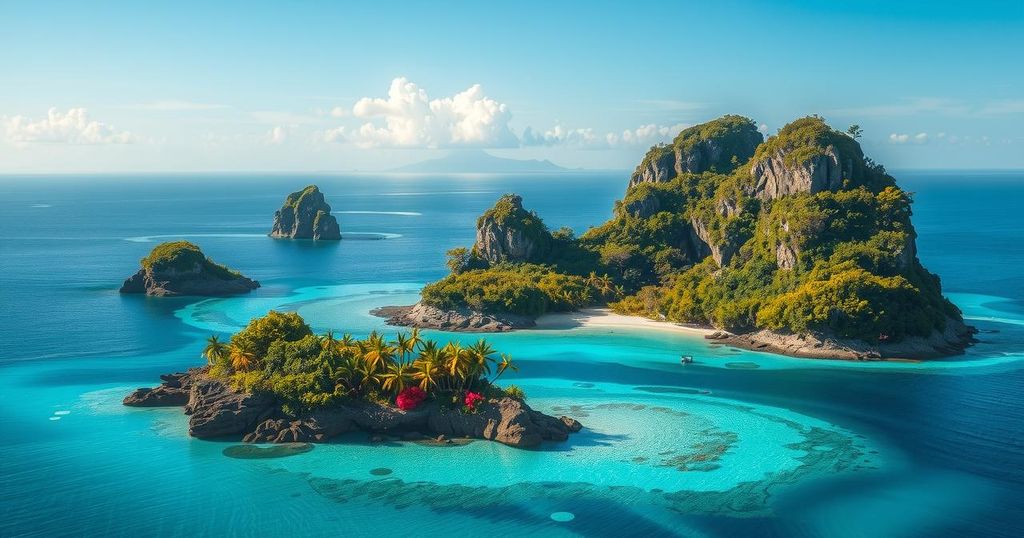Activists in the Chuuk islands are advocating for independence from the Federated States of Micronesia due to concerns over dependency on US aid and the importance of reclaiming cultural identity. The potential shift in US foreign policy under President Trump raises fears that their special relationship may be jeopardized, and the idea of a long-awaited referendum continues to loom amid internal divisions regarding independence.
The Chuuk islands, part of the Federated States of Micronesia (FSM), are located in the Pacific Ocean and play a strategic role in the region, particularly due to the nation’s alliance with the United States. The islands have a population of around 113,000 and receive substantial American aid for various sectors, including health care and education.
Sabino Asor, former attorney general of Chuuk, advocates for the islands’ independence from Micronesia, expressing concern about the nation’s dependency on US support. He believes this reliance compromises their autonomy and decision-making power, particularly amidst potential changes in US foreign policy under the Trump administration.
The urgency for independence is emphasized by Asor, as he fears that US interests may shift, jeopardizing the existing partnership governed by the Compact of Free Association. He suggests that if Chuuk were independent, they could negotiate a separate agreement with the US, though he recognizes the uncertainty of such negotiations.
Asor also highlights the potential for Chuuk to forge connections with former colonial powers, such as Spain and Germany, or strengthen ties with China, which is expanding its influence in the Pacific region. This reflects a desire for economic relationships that significantly benefit Chuuk’s development.
Historically, Chuuk has experienced significant foreign control, beginning with Spanish colonization, then German and Japanese administration. Following World War II, the US managed the islands as a trust territory, leading to the FSM’s independence in 1979, with a renewed Compact of Free Association in 2023.
Johnny Meippen, a lawyer, asserts the importance of preparing for unexpected changes in US policy, noting that sovereignty would grant Chuuk control over its territorial waters and resources. The ongoing discourse surrounding independence continues, with promises of a referendum that has yet to be realized, raising questions about government apprehension towards independence.
The quest for Chuuk islands’ independence reflects complex historical relationships and current geopolitical considerations. Activists like Sabino Asor and Johnny Meippen argue for self-determination to address economic and cultural needs, amidst fears of increasing US disengagement. The delayed referendum underscores the challenges faced by pro-independence advocates in achieving their goals in a multifaceted political landscape.
Original Source: www.dw.com




